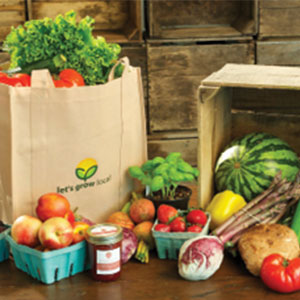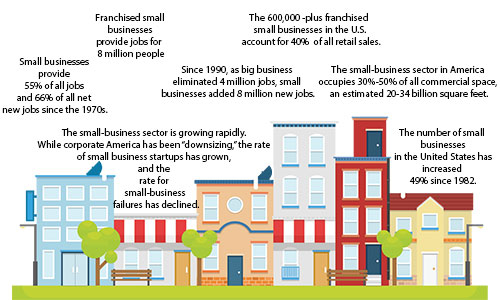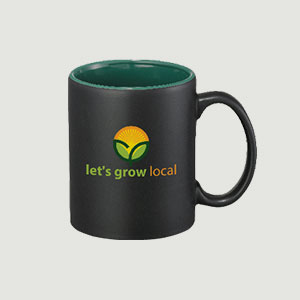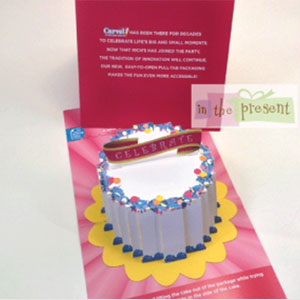Strategy September 18, 2015
Small Business Market: Big Sales
Whether mom-and-pop retailers or solopreneur startups, smaller businesses need help with branding and promotions, just like any Fortune 500.
Whether mom-and-pop retailers or solopreneur startups, smaller businesses need help with branding and promotions, just like any Fortune 500.
Small-business ownership is on the rise.
According to the most recent statistics released by the Small Business Administration (SBA), 28 million small businesses operating across the country account for roughly 54% of all U.S. sales.
These smaller businesses are writing their own workforce histories, and they need your help getting their names and messages out to the buying public. Here’s how distributors are helping build small-business brands.
Stir Positive Emotions
To be effective – even great – promotional items need to put forth a clear, compelling business message, says Lisa Baker-King, a writer, family coach, relationship expert and founder of LBK Kreatives, LLC, and zebecs.com, based in Springfield, IL. As a coach and small-business owner, she regularly deals with media outlets, and branding herself through meaningful promotions is an essential part of her business approach.
Enter the Z-saver, resembling Lifesavers roll candy. The various colors and flavors represent diversity and serve as a tasty reminder to those who receive them. “They think of me every time they are eating the candies,” Baker-King says of the promotion and brand recognition Z-savers inspire.
But Baker-King says business owners should not be “too emotional” or “caught up” in the promotional item itself. On the flipside, the promotional item should encourage a positive emotional response from the recipient, and be memorable, too.
Workshops Work
Customized one-of-a-kind travel mugs fit the positive emotional response bill for a small franchise coffee shop in Wisconsin. Tom Kibbe, vice president of marketing for Products of Distinction Advertising Specialties Inc., (asi/466529), says a stand-out promotion he managed several years ago for a Dunn Bros. coffee shop was highly successful because it exceeded the promotion’s goals and was memorable years later
“The owner of the franchise was looking to bring in more than commuter traffic to her shop,” Kibbe says. Since the boutique business roasted its own coffee beans onsite, the owner opted to carry through the java message by taking customization a step further.
Workshops were organized for adults and their children to sign up for a creative art experience. Clear travel mugs included a sized blank piece of paper. Kids were encouraged to create their own masterpieces during the workshops held inside the coffee shop.
The finished coloring pages were slipped back into a protective sleeve inside the mug, creating a one-of-a kind gift item. The promotional mugs – which participants paid for – met two goals: Promoting the shop and bringing in a diverse client base. “Every mug was unique,” Kibbe says. “While not a giveaway, these mugs were very popular. We could order small quantities, too, which was perfect for the client.”
Minimum orders of 48 mug kits per batch resulted in less waste for the business owner, who ended up selling out of three rounds of orders. The mugs were purchased for about $3.50, and sold for $7, Kibbe says.
Make the Local Connection
In Maryland, logoed coffee mugs are a gentle morning reminder to patrons of a Silver Spring farmers’ market, because coffee beans are also sold there. “Let’s Grow Local” coffee mugs cost $3.17 each for an order of 144 mugs, and the evergreen promotion is ongoing, says Joseph Sommer, principal and president of Whitestone Works (asi/359741).

“Let’s Grow Local” farmers’ market brands itself with reusable tote bags, too, ideal for carrying the day’s purchase, and patrons receive a discount for using them. “The ‘Let’s Grow Local’ farmers’ market tote bags were created to increase market recognition and encourage recycling,” Sommer says. The tote bags cost $2.28 each, and each order for the ongoing promotion is 150 bags.
Sommer says his approach to promotional items is more about seizing opportunities to meet an existing need for clients. “The call I get is aimed at putting together some suggestions, so I’m looking for opportunities,” he says.
Use Events
As quintessentially American as James Dean or Thanksgiving dinner, when Sommer seized upon the idea of using popular Thanksgiving “turkey trot” 5K and 10K races to cash in on brand marketing, there was no contest: a race T-Shirt was the way to go.
“Every Thanksgiving, small towns everywhere have turkey trot races to burn off the calories ahead of the feast,” he says. “T-shirts or a coffee mug advertising the upcoming event are a way to provide sign-up incentives ahead of race day,” Sommer says.
For participating small-biz advertisers, the brand awareness lives on long after the T-shirts cross the finish line. “I know that it is an opportunity to go out and see 2,000 T-shirts,” at a race, he says. You could also advise your small-business clients to go in on co-op advertising to defray costs.
From ordering thousands of T-shirts to one, a small printing company in Quakertown, PA, ups the ante on T-shirt orders by providing customization down to a single shirt. “Superb quality in any quantity” from one to 500 is what sets Presidential Printing apart from the pack.
Robert G. Cope, Jr., its owner/operator, says direct-to-garment printing on creamy, soft cotton shirts allows his business to accommodate a wide variety of local customers, many of whom are also small-business owners. “This technology with stock shirts can be turned around same day or within a couple of days, and that’s part of the beauty of it,” Cope says of the onsite investment he’s made in an Anajet printer
Jason Wehrung, owner/ operator of Solid Products LLC (asi/329786), agrees that T-shirts rule. “They are the most popular and our number-one seller,” he says of the customized promotions his small business offers to other small businesses. A “walking billboard, everyone has one and everyone uses them.”
For the small-business market, yard signs advertising contractor’s services or special promotions along with holiday thank-you gifts are among his other top promotional performers.
Audience = Awareness
What makes the difference between an outstanding promotional give-away or one that’s only so-so? Baker-King says she differentiates promotions, depending upon her audience, for the greatest impact and results.
“Audience equals awareness,” Baker-King says. For a workshop she hosted at a community library, Baker-King created three distinct, themed spiral-bound journals to give to participants. “These are women who don’t take much time to focus on themselves. They love branded journals,” she says.

Quotes revolved around three themes: inspire, discover and restore. Though more costly to produce, the journals were popular because the “value index was high, and because the participants got to choose which themed journal they used,” Baker-King says.
Another effective promotion Baker-King used recently was branded pocket-purse mirrors for a quick makeup fix. “These mirrors were also used in an exercise at the workshop; promo items should always have a purpose your audience can relate to,” she says.

Ensure Repeat Business
For small retail business owners, repeat customers are the bread and butter. To ensure they keep coming back, one florist says colorful monthly calendars are a staple in his promotional toolkit.
Steve Condon, owner/operator of Condon’s Flower Cart sticks with calendars customized with floral arrangements. The calendar serves as a lush visual cue to his customers to remember holidays, anniversaries, birthdays and special occasions – and to order from him. “The calendars in people’s homes are a year-round reminder (of my services),” Condon says.
The shop’s name, address, phone number, website and prompt that Condon’s Flower Cart is a Teleflora affiliate, provides an easy way for customers to place orders.
Through his calendars, Condon’s Flower Cart is front and center in his customer’s homes, even when a fresh bouquet isn’t.
College Students as Consumers
When College Grove Apartments in Murfreesboro, TN, wanted to create more awareness of off-campus housing for Middle Tennessee State University students, two unique promotions fit the bill.
Valerie Hayman Sklar, president of Corporate Specialties (asi/169040), worked with College Grove Apartments management to create a specialized glove to cheer on the university basketball team. The gloves created buzz about the off-campus housing alternative.
Marketing to Millennials

As adult millennials become a reigning force to reckon with, promotional campaigns should factor their needs into the products chosen. According to a Monster.com report, a staggering 75% of the global workforce will be made up of millennials by 2025. (SOURCE: http://hiring.monster.com/hr/hr-best-practices/small-business/hiring-process/gen-y-small-business.aspx).
Statistics released in June, 2015 by the U.S. Census Bureau, indicate for the first time, millennials rule by the numbers. Millennials, or those born between 1982 and 2000, number about 83.1 million, surpassing their approximately 75.4 million baby boomer counterparts.
In fact, millennials represent a more diverse consumer generation than ever before, and many of them are small-business owners, solopreneurs or heading fresh startup companies. The challenge for those promoting to this newest wave of business consumers means taking time to discover what promotional items resonate with them.
According to a Small Business Trends article report published in June, many small-business owners are missing out by not specifically targeting millennial consumers. In fact, the article says only 15% of small businesses across all industry segments market directly to millennials.
Sommer, himself a millennial, says he believes his older customers look to the younger generation for leads on promotional products and “want something hip. Younger clients want to be different, and they want to stand out,” he says.
Sommer’s client Train Heroic, a customized training program firm that works with coaches and athletes, came up with an unforgettable customized promotion aimed at men: Urinal splash guards. “We did 300 of these for $5 each,” he says.
The gloves, which had ping-pong ball halves sewn into them, created a loud noise when clapped together. Like laughter, the odd clapping became contagious. A pair of gloves cost about $2.50, and 500 pairs were handed out at college basketball games, Hayman Sklar says. “They stood out,” she says of the amped-up gloves.
Hayman Sklar’s second College Grove Apartments promotion was a battery charger for smartphone or iPad devices. “They were having trouble getting students to tour the apartments,” she says. Students who committed and took an apartment tour received a battery charger on the spot, just for taking the tour.
Encourage local small businesses in college towns to get in on the action with branded products that can be included in welcome kits and recruitment initiatives. If they want to escape cafeteria food every now and then, they will have to get their pizza somewhere!
Make It Memorable
Whether announcing new products or special offers, or outfitting promotions for annual meetings, Pamela Grossman, founder of In the Present (asi/388252), says innovation helps to craft the most memorable promotions.
From sharks to ice cream cakes, two campaigns aimed at creating greater product awareness were effective and memorable.
For an annual conference for American Home Surfaces Group, a flooring company, Grossman used life-sized inflatable sharks suspended from the ballroom of an Atlanta hotel along with megaphone “beware the sharks” announcements.
For a Carvel franchise, a cleverly crafted Carvel pop-up ice cream cake promotional card was used to promote the business. “We measure success when someone takes a picture of the promotion and then posts it on Facebook or tweets it,” Grossman says.
John Helder, of HALO Branded Solutions (asi/356000), says technology has changed the way many small businesses operate, which may also drive how new customer prospecting is achieved. One of his clients, an independent insurance agent, solved a prospecting problem by going online. “The challenge has been getting people to come into the office to sit down for an appointment. That’s just not how many people – especially millennials – want to do business,” Helder says.
The insurance agent is currently using an online promotional referral program to existing clients to stimulate leads for new business. “Existing customers are rewarded when they refer a client, using their own social media,” Helder says. Rewards for referrals range from cellphone chargers to stadium blankets, flashlights and Swiss army knives.
Melinda Rizzo is a PA-based freelance writer.
